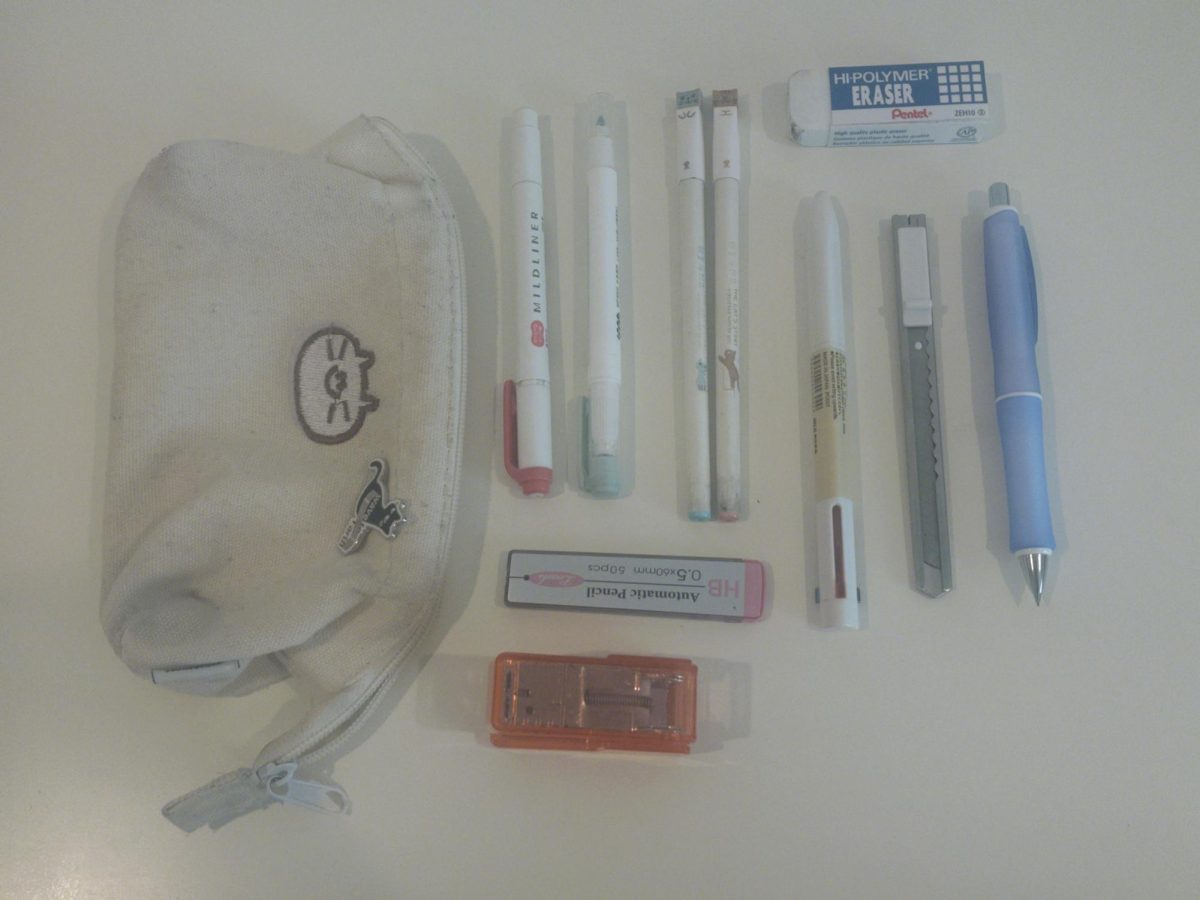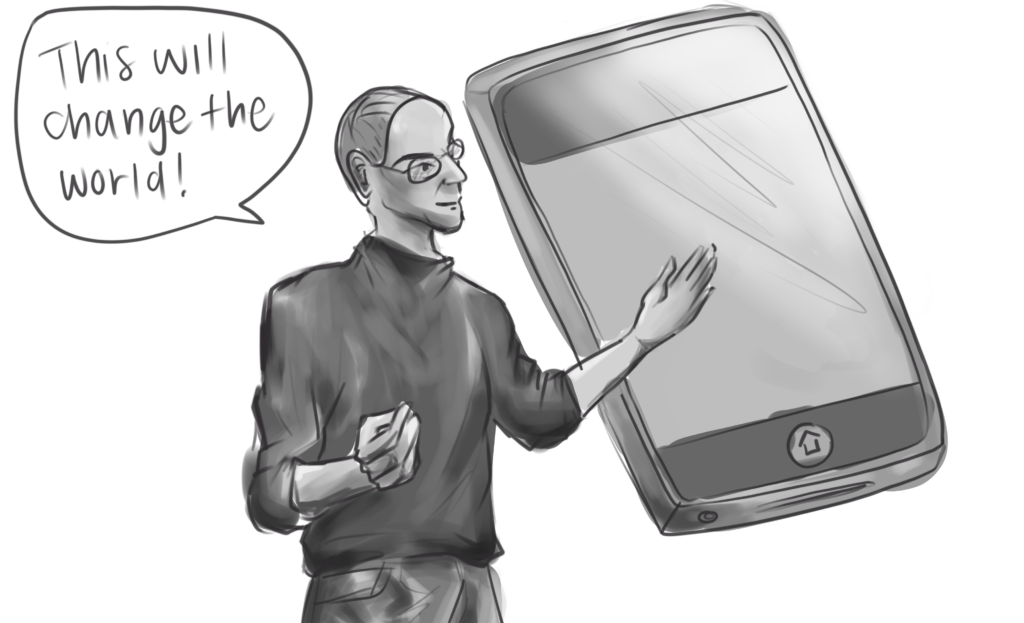After three years out of public eye, Elizabeth Holmes, the founder and former CEO of the now-defunct blood analysis company Theranos, was convicted on Jan. 3 on four of 11 counts of wire fraud.
The rise and fall of Theranos, arguably one of the most intriguing and disgraceful episodes of fraud within Silicon Valley’s technology bubble, brought increased scrutiny of its famous startup culture.
Once lauded for its creativity, entrepreneurship and innovation, the tech hub has received increasingly scathing criticism over its role in perpetuating the greedy, fame-seeking culture that catapulted Theranos to its $9 billion net worth. The company ceased operations in 2018 after multiple discrepancies relating to the falsification of blood tests dragged the company down.
Despite all the hand wringing, however, Holmes and her company are not representative of the valley’s true culture. The company took the “fake it until you make it” mindset to an extreme, was more so a health care than a tech company and appointed a board irrelevant to the company’s declared mission for health care.
Since Holmes’s indictment, critics have used Theranos to highlight the problems with the “fake it until you make it” ideology embraced by revolutionary tech giant founders and popularized by the late Apple co-founder Steve Jobs and others.
The problem lies not in the valley’s usage of the mindset itself, but Holmes’s interpretation and application of it.
When Jobs first showcased the “fake it until you make it” mindset on Jan. 9, 2007 during the iPhone’s first unveiling, he switched out demo phones every time one overloaded in order to create a seamless demonstration. In reality, his product was an unfinished idea that still needed continued improvements to be ready for the marketplace.
When the phone reached the general public half a year later, Jobs was true to his word: The phone was effectively a “portable laptop.”
By contrast, Holmes’s “Edison machine” — a device that could allegedly run dozens of medical tests on one drop of blood using a nanotainer — was a fiction and never worked at all: not when it was pitched to investors, not when it was sold to Walgreens, not when it was released to the general public.
And yet Holmes still claimed that the Edison worked even when people began complaining about false positives with autoimmune diseases such as prostate cancer and Ebola. In fact, she counteracted the criticism by making even more outlandish claims about the Edison’s capabilities.
Holmes twisted the motto to fake it until you make it to fit her own warped definition. It’s one thing to display an in-process product during a demonstration, but it’s a completely different story to put out a faulty product for consumer use and continue to lie about its capabilities, even going so far as to cover its defects with outside commercial machines.
Another stark contrast between typical Silicon Valley tech companies and Theranos lies in its board.
For example, Apple, the company Holmes strived to mimic, has a board of experienced business executives to guide Apple from a variety of fields, with exception of one former government official. The board is made up of James Bell, former CFO and corporate president of The Boeing Company; Alex Gorsky, chairman of Johnson & Johnson; Arthur Levinson, former chairman and CEO of Genentech; and Albert A. Gore Jr., the former president.
The Theranos board had former government officials with no experience with health care: Jim Mattis, former head of U.S. Central Command who later became President Trump’s defense secretary; Henry Kissinger, former secretary of state in the Nixon administration; and George Shultz, another former secretary of state, among others.
Rather than acting out of the usual Silicon Valley playbook and hiring a mixture of genuine knowledgeable experts who could contribute to the company, Holmes, in an attempt to paint a facade of credibility, appointed a board made entirely of former U.S. federal government heavyweights. It is an anomaly for a Silicon Valley company to appoint a board of directors that has little to no connection to the company’s mission. Even more shocking is how she claimed her technology was being widely used by military doctors, yet another lie.
Additionally, although Theranos’s initial catapulting to high valuations may have shared uncanny similarities to that of other tech giants, the fundamental difference was the “tech” aspect. Simply put, Theranos was a health-care company, a category subject to much different standards than a tech company.
Although there are many startups that are an intersection between healthcare and technology, health-care companies directly affect the well-being of their product users, while regular tech companies usually aim to create a practical product that would make the lives of users easier; it’s an important distinction to make because Theranos, as opposed to other Silicon Valley corporations, affected the health of potentially millions of individuals.
Contrary to accepted scientific practice, Theranos used cherry-picking, the practice of throwing out outliers in datasets in order to pass quality control checks. Employees who brought up concerns regarding the company’s laboratory practices were attacked viciously by Holmes and her attorneys, and told to either continue trials or resign.
On top of disregarding any data related to the Edison’s faulty performance, Holmes knowingly sold the company’s defective medical technology to Walgreens, which ran 1.5 million blood tests on approximately 176,000 consumers, in a report by USA Today. Nearly 1 in 10 of these tests was inaccurate; instead of addressing these issues, Theranos voided them.
As a result, various false positives or false negatives forced patients to change their lifestyles or left them undiagnosed. In one case, a woman who was diagnosed with Hashimoto’s disease, a thyroid autoimmune condition, took unnecessary medication. Another woman panicked after receiving results indicating a possible recurrence of breast cancer.
It is one thing to sell a faulty tech product. It’s completely different to conduct trials on actual patients whose medical decisions often relied on the results from suspect blood tests, and then throw out any results that did not fit their company’s public image. Theranos’ deceit was a matter of life and death for their consumers, rendering its dealings disgustingly more unethical than a tech company that promises the next great cell phone or computer chip.
Ultimately, Holmes’s manipulative intent and distortion of reality undermines the truth behind why people invest in Silicon Valley unicorns in the first place: for creativity, innovation and a chance to change the world for the better.
Silicon Valley is a place in which entrepreneurial risks are celebrated, innovation is strived for, failures are learning opportunities and the impossible is a mere challenge which can be overcome with cutting-edge technology. Although Holmes’s company can serve as a warning for others, the sad and distressing Theranos tale remains an outlier in Silicon Valley.


























